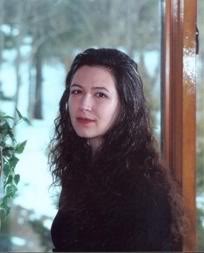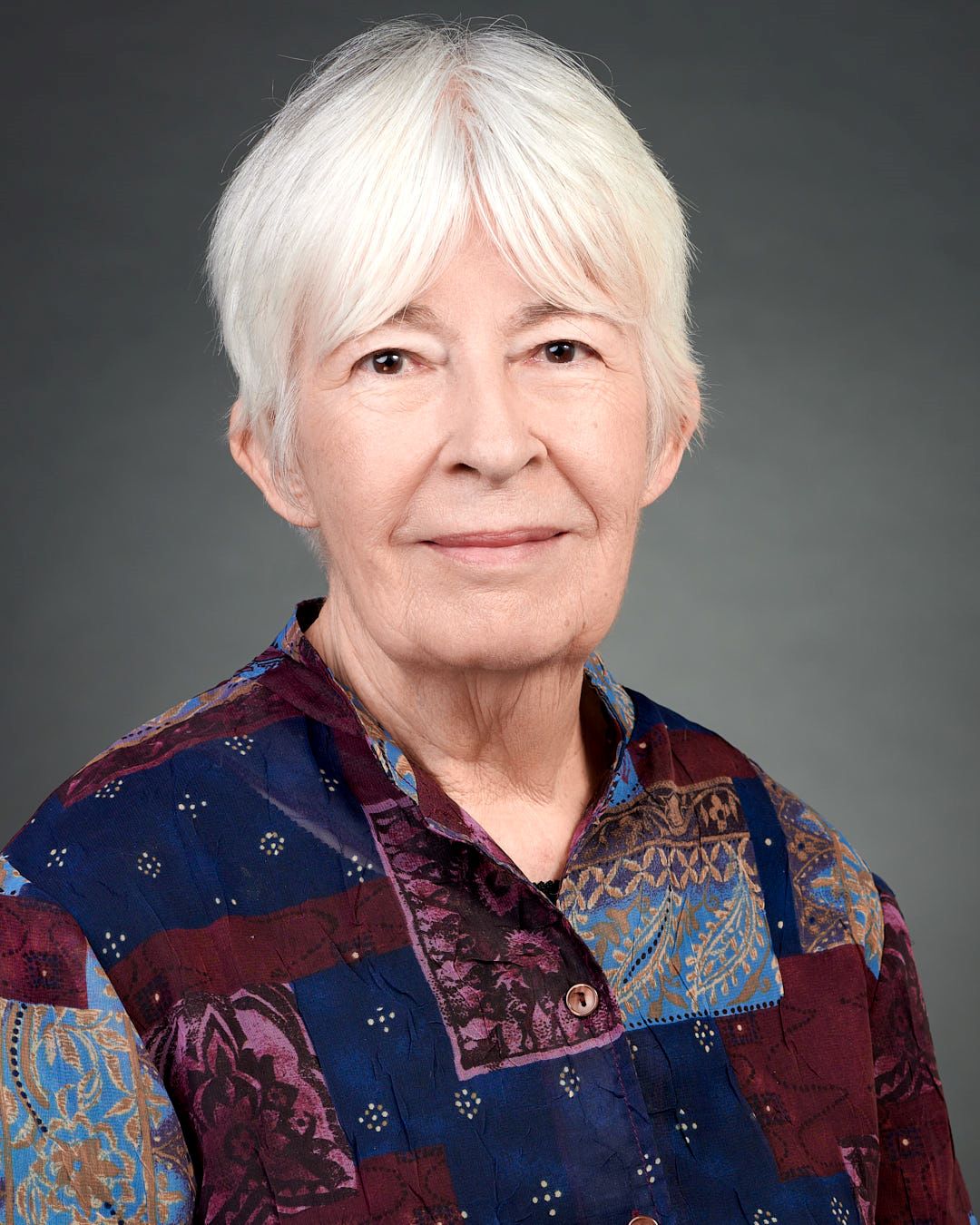INTERVIEW: Jacqueline Carey, Part 1
By Juliet Marillier | November 2, 2007 |
 Please note: This interview was conducted by fantasy author, and WU contributor, Juliet Marillier.
Please note: This interview was conducted by fantasy author, and WU contributor, Juliet Marillier.
Jacqueline Carey sprang to prominence with the publication in 2001 of her debut novel, the dark erotic fantasy Kushiel’s Dart. The book garnered critical praise, winning the Locus Best First Novel Award, and won Jacqueline a horde of devoted fans. It also spawned a flurry of imitators. Since then, this talented author has penned four more novels in the Kushiel’s Legacy series as well as a two-book epic fantasy, The Sundering. Her most recent book, Kushiel’s Justice, was published in June 2007.
I’ve been a fan of Jacqueline’s work since I first met her on a memorable book tour in 2001. Here are some of the glowing comments her writing has inspired:
Credible and gripping, this is heroic fantasy at its finest. (From a starred review of Kushiel’s Scion in Publisher’s Weekly)
Intelligent, sexy, heartbreakingly human, Carey at her intoxicating best. (from a Booklist starred review of Kushiel’s Scion by Paula Luedtke)
I was delighted when Jacqueline agreed to an interview for Writer Unboxed.
Part 1: Interview with Jacqueline Carey
Q: Kushiel’s Scion and Kushiel’s Justice are published in the USA by Warner Books. The first three books in the Kushiel’s Legacy series, and your duology, The Sundering, were published by Tor. I’d be interested to hear what the issues were with switching publishers and editors, in effect, mid-series, since the new books continue Kushiel’s Legacy.
JC: It came down to a matter of creative differences. When I proposed continuing the Kushiel’s Legacy series, I thought my editor would jump for joy, but she had reservations about my switching to a male protagonist. She was concerned that it would alienate my female readership, while I felt strongly that Imriel was the logical choice to extend the dramatic arc of the series. In the end, I turned down Tor’s offer because I wanted to work with an editor who was excited about the project. I found that at Warner, and the transition was quite seamless. But I’ll always be grateful to Tor for launching my career, and I did get a lovely note from my editor there after Kushiel’s Scion was released saying she thought I’d pulled it off after all.
Q: One of the great strengths of the Kushiel books is the elaborately realised variant on Renaissance Europe that forms their world. It’s like an enhanced version of ‘real world’ history. I especially enjoyed the section of Kushiel’s Justice that takes your protagonist, Imriel, into the territory of the Cruithne and Dalriada (Picts and Gaels) because that provides such a dramatic contrast with the glittering courts of your ‘European’ countries. It seems to me that to create such a clever trope on real European history, you must have done very extensive research on everything from language to weaponry to trade routes. What is your research process and how much time do you spend on it?
JC: Research is a constant, ongoing process. I’m always delving into material that I suspect may inform my world-building. On a more specific note, once I have the overall framework of the plot in mind, I do a lot of research up front to flesh out my literary itinerary, looking for those little details that bring a setting to life. Some of it finds its way into the books, and some doesn’t. I did a lot of research on bears that didn’t make it into Kushiel’s Justice. On the other hand, research that revealed the existence of natural gas deposits in Azerbaijan turned into a significant plot point in Kushiel’s Avatar. At a rough guess, I’d say I spend at least a couple of months doing research before I start writing. Once I’m immersed, I research on the fly on an as-needed basis.
Q: Kushiel’s Dart and its two sequels feature an extremely distinctive first person narration by the unforgettable courtesan and spy, Phèdre. Her elegantly persuasive voice captured me from the outset and kept me reading compulsively even though some of the books’ content took me well outside my comfort zone. What were the challenges of returning to the world of Terre D’Ange with a different narrator, Imriel, the damaged foster son of Phèdre and Joscelin? His narrative voice is distinctly different from Phèdre’s.
JC: Writing in the first person is such an intimate experience that it was very difficult to look at such a familiar world and beloved characters through a new set of eyes. Getting past that initial shock of strangeness and settling into Imriel’s head was probably the biggest challenge. On the plus side, he’s less eloquent and observant than Phèdre, which makes him easier to write.
Q: A first person male narration, including graphic sex scenes from a young man’s POV, must have been challenging – especially so as Imriel has been abused as a child and has a lot of emotional baggage to deal with. Or was it? How easy was it to get under Imri’s skin?
JC: I do a lot of research and background reading. In this case, it included reading about both survivors of childhood abuse, and reading male writers to try to get a feel for an authentic male voice. By the time I got to the point of his first sexual encounter, I felt pretty comfortable in his skin, and it was a positive experience because I intended that encounter to be a cathartic, healing one, albeit one that was emotionally charged.
Q: Over the course of the two novels, Kushiel’s Scion and Kushiel’s Justice, the protagonist grows from a damaged and insecure boy to a complex and much wiser man. You put him through some testing experiences. How different was it charting Imriel’s journey from that of Phèdre, and which did you enjoy writing most?
JC: Tough call! Phèdre is a unique heroine and a true gift of the Muses, and in some ways, she will always be my favorite. But in terms of writing the overall character arc, I may have to pick Imriel’s journey because he changes and grows so much over the course of his trilogy.
Q: When a writer continues a well-loved series with the next generation, the strong, compelling ‘old’ characters can steal the limelight from the new ones. I know this because I’m currently struggling with that phenomenon! This must have been a problem for you with Phèdre and Joscelin, both so well-loved by your readers. Could you talk about how you tackled this? Perhaps the best advice to other writers is ‘Send them on a quest.’
JC: Quests are good. It’s a balancing act, because you don’t want to consign beloved characters to irrelevance, but you need to let the new ones shine. In the first book, I sent Imriel on a voyage of self-discovery. It was an important psychological step because he needed to find an identity that wasn’t defined by either his heroic foster parents or his treacherous birth parents, but it also served to get him on his own. In the second, I sent Phèdre and Joscelin off on a quest of their own. Again, it got them off-stage and also served to lay the groundwork for a plot point I may or may not pick up in the future. I like to give myself plenty of options.
There’s another plot twist that sidelines them in the third book, but I can’t elaborate without spoilers!
Q: You have a flair for creating memorable secondary characters. You never short-change the reader in this regard. One example is Claudia Fulvia in Kushiel’s Scion. I was delighted by the way you gradually let us see her as a far stronger and deeper character than at first appeared. Maslin de Lombelon is another character who keeps surprising the reader. Do you have a process for creating and developing characters? How do you keep track of your large cast?
JC: Oh, my head is a very crowded place! But I don’t have a process for creating them, no. Another writer (I can’t recall who) once said it felt as though there were a green room in his head where characters waited to be called onstage. That resonated with me. I’m fascinated by human nature and an inveterate people-watcher, which helps. In fact, if Kushiel’s Dart hadn’t sold, I was ready to give up on writing and get my graduate degree in psychology. Still, where characters come from is a mystery.
Where they go once they’re here is a different matter. I put conscious thought into their growth and development. In the case of Claudia Fulvia, I wanted to depict how crisis can bring out underlying strengths in unexpected ways. Maslin surprises himself along with the reader with a dose of brutal self-honesty. It makes him more complex and human, but it also serves to highlight the difference between him and Imriel in the degree of personal growth each has attained.
I’ve never had a problem keeping track of them. I probably just jinxed myself, didn’t I?
Click HERE for part two of Juliet Mariller’s in-depth interview with Jacqueline Carey!










What a fantastic interview. Thanks so much, Juliet, and thank you, Jacqueline, for your time with this.
i love reading about another writer’s processes. great interview! thanks WU
Great interview. Very enlightening.
Wow, one of my favourite writers interviewing another of my favourite writers! Heaven must be like this:-) Thank you, Juliet and Jacqueline!
I have to agree with Satima. Both authors that I absolutely adore~